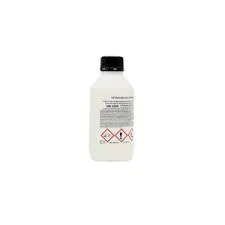chloro methyl isothiazolinone
Chloro methyl isothiazolinone, commonly referred to as CMIT, is a biocide widely used in various industrial and consumer products. This chemical belongs to the isothiazolinone family, which is known for its effective antifungal and antibacterial properties. The use of CMIT can be found in paints, coatings, wood preservatives, and personal care products like shampoos and lotions. Its effectiveness in preventing microbial growth makes it a popular choice among manufacturers seeking to enhance the shelf life and safety of their products.
One of the key attributes of CMIT is its ability to inhibit the growth of bacteria and fungi, thereby preventing spoilage and degradation of products. This is particularly important in industries where product contamination can lead to significant financial losses, as well as potential health risks for consumers. In personal care, for example, CMIT is often added to formulations to maintain product integrity over time, especially in formulations with high water content, which are more susceptible to microbial growth.
However, the use of CMIT has raised awareness and concern regarding its potential health effects. There have been reports of allergic reactions and skin sensitivities associated with products containing this compound. In response, regulatory bodies in various countries have begun to monitor and impose regulations on the use of CMIT, particularly in cosmetic products. The European Union, for instance, has set stringent limits on the concentration of CMIT in cosmetic formulations due to concerns about sensitization and allergic reactions among consumers.
chloro methyl isothiazolinone

Manufacturers are now encouraged to adopt alternative preservatives and biocides that are considered safer or to minimize the concentration of CMIT in their products. This shift not only protects consumer health but also aligns with the growing demand for environmentally friendly and non-toxic products. In light of these developments, many companies are investing in research to develop new formulations that can effectively replace CMIT while maintaining the desired efficacy of their products.
In conclusion, chloro methyl isothiazolinone is a powerful biocide that has found widespread application across various industries
. While it plays a crucial role in preserving product integrity and safety, the associated health concerns have prompted a reevaluation of its use in consumer products. As manufacturers adapt to changing regulations and consumer expectations, the future of CMIT and similar compounds remains a topic of ongoing research and debate. The quest for safer alternatives continues, underscoring the balance between product efficacy and consumer safety.-
Understanding Polycarboxylic Acids: Properties, Applications, and Future PotentialNewsJul.28,2025
-
Scale Inhibitor Explained: How to Protect Your System from Limescale and Hard Water DamageNewsJul.28,2025
-
Scale and Corrosion Inhibitors: Essential Chemicals for Industrial Water System ProtectionNewsJul.28,2025
-
Polyaspartic Acid: A Biodegradable Polymer for Sustainable ChemistryNewsJul.28,2025
-
Isothiazolinones: A Versatile Antimicrobial Class with Industrial Power and Regulatory ChallengesNewsJul.28,2025
-
A Deep Dive into 2-Phosphonobutane-1,2,4-Tricarboxylic Acid (PBTC)NewsJul.28,2025





